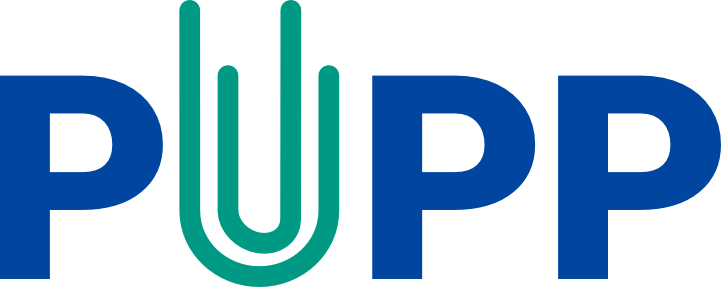Références de la présentation faite à l’ADMÉE le 04 avril 2023 (Mons, Belgique)
Jennifer Smith & Martine Peters, Université du Québec en Outaouais.
Références extraites des diapositives:
- Acar, S., Burnett, C. et Cabra, J. F. (2017). Ingredients of Creativity: Originality and More. Creativity Research Journal, 29(2), 133-144. doi: 10.1080/10400419.2017.1302776
- Anderson, L.W., Krathwohl, D.R., Airasian, P.W., Cruikshank, K.A., Mayer, R.E., Pintrich, P.R., Raths, J., & Wittrock, M.C. (2001). A taxonomy for learning, teaching, and assessing: A revision of Bloom’s Taxonomy of Educational Objectives (Complete edition). New York: Longman.
- Bailey, J. (2022, December 19). AI and the Danger of Good Enough. PT Plagiarism Today. https://www.plagiarismtoday.com/2022/12/19/ai-and-the-danger-of-good-enough/
- Barbey, G. (2023, 30 janvier). ChatGPT facilite la triche : et si c’était une bonne nouvelle?news les scientifiques de l’info : Cyber, Le point fort, Analyse. https://www.heidi.news/cyber/chatgpt-facilite-la-triche-et-si-c-etait-une-bonne-nouvelle?fbclid=IwAR0prQpUX1Tbfx_uFzvV8PW83D0_FzFACmTtW_5FRpx0_PWCxj7Ahv_6bvw
- Culwin, F., et Lancaster, T. (2001). Plagiarism, prevention, deterrence and detection. https://citeseerx.ist.psu.edu/viewdoc/download?
- Davies, D., Jindal-Snape, D., Collier, C., Digby, R., Hay, P., & Howe, A. (2013). Creative learning environments in education–a systematic literature review. Thinking Skills and Creativity, 8, 80–91.
- Dawson, P. (2020). Cognitive Offloading and Assessment. In: Bearman, M., Dawson, P., Ajjawi, R., Tai, J., Boud, D. (eds) Re-imagining University Assessment in a Digital World. The Enabling Power of Assessment, vol 7. Springer, Cham. https://doi.org/10.1007/978-3-030-41956-1_4
- De Bruijn-Smolders, M., Timmers, C. F., Gawke, J. C. L., Schoonman, W., & Born, M. P. (2016). Effective self-regulatory processes in higher education: research findings and future directions. a systematic review. Studies in Higher Education, 41(1), 139–158.
- Eid, M. I. M., & Al-Jabri, I. M. (2016). Social networking, knowledge sharing, and student learning: the case of university students. Computers & Education, 99, 14–27.
- Fahim, S. (n.d.). Assessments – Prevention Strategies to Combat Plagiarism [PowerPoint presentation]. The British University in Egypt. https://www.bue.edu.eg/powerpoints-academic-honesty/
- Fan, M. et Cai, W. (2020). How does a creative learning environment foster student creativity? An examination on multiple explanatory mechanisms. Current Psychology, 1-10.
- Frey, B. B., Schmitt, V. L., & Allen, J. P. (2012). Defining authentic classroom assessment. Practical Assessment, Research & Evaluation, 17(2).
- Gibelman, M., Gelman, S. R., et Fast, J. (1999). The downside of cyberspace: Cheating made easy. Journal of Social Work Education, 35(3), 367-376.
- Gleason, Nancy (2022). ChatGPT and the rise of AI writers: how should higher education respond? Times Higher Education. https://www.timeshighereducation.com/campus/chatgpt-and-rise-ai-writers-how-should-higher-education-respond
- Harris, Robert (2015). Antiplagiarism Strategies for Research Papers. Virtual Salt. http://www.virtualsalt.com/antiplag.htm
- International Center for Academic Integrity (2021). The Fundamental Values of Academic Integrity. https://academicintegrity.org/images/pdfs/20019_ICAI-Fundamental-Values_R12.pdf
- Johnson-Eilola, J. et Selber, S. A. (2007). Plagiarism, originality, assemblage. Computers and Composition, 24(4), 375-403.
- Kashani-Vahid, L., Afrooz, G., Shokoohi-Yekta, M., Kharrazi, K., & Ghobari, B. (2017). Can a creative interpersonal problem solving program improve creative thinking in gifted elementary students? Thinking Skills and Creativity, 24, 175-185.
- Legros (mars 2023). ChatGPT, Chomsky et la banalité du mal. Philosophie magasine. https://www.philomag.com/articles/chatgpt-chomsky-et-la-banalite-du-mal?utm_source&utm_campaign=socialpilot&fbclid=IwAR2k00YEtjd6loJfJqcNnJb-z_1D-1rkztAKc3UH59jOUwoSOZG9cuoHL6w
- Macdonald, R., et Carroll, J. (2006). Plagiarism—a complex issue requiring a holistic institutional approach. Assessment & Evaluation in Higher Education, 31(2), 233-245.
- Marche, S. (2022). The College Essay is Dead. The Atlantic, 6 décembre, 2022. https://www.theatlantic.com/technology/archive/2022/12/chatgpt-ai-writing-college-student-essays/672371/
- Partenariat universitaire sur la prévention du plagiat. (2022). Page consultée : 2023-04-03. https://pupp.uqo.ca/
- Profinnovant (s.d.). Taxonomie de Bloom révisée : verbes d’action. Section pédagogie. https://www.profinnovant.com/taxonomie-de-bloom-revisee-verbes-daction/
- Risko EF, Gilbert SJ. (2016). Cognitive offloading. Trends in Cognitive Sciences. 20(9):676–688. doi: 10.1016/j.tics.2016.07.002.
- Shin et al. (2012) White M, Kern ML. Positive education: Learning and teaching for wellbeing and academic mastery. International Journal of Wellbeing. 2018;8(1):1-17. DOI: 10.5502/ijw.v8i1.588
- Sotiriadou, P. Logan, D., Daly, A. et Guest, R. (2020). The role of authentic assessment to preserve academic integrity and promote skill development and employability. Studies in Higher Education. Vol. 45, no. 11, 2132-2148.
- Smith, C. D., Worsfold, K., Davies, L., Fisher, R. et McPhail, R. (2013). Assessment literacy and student learning: the case for explicitly developing students ‘assessment literacy’. Assessment & Evaluation in Higher Education, 38(1), 44-60. doi: 10.1080/02602938.2011.598636
- Spannagel, C. (2023). Rules for Tools. Pädagogische Hochschule Heidelberg. https://csp.uber.space/phhd/rulesfortools.pdf
- Spencer, J. (2022, December 09). Human Skills in a World of Artificial Intelligence. John Spencer. https://spencerauthor.com/human-skills/
- Spiller, D. (2014). Assessment matters: Academic Integrity. The University of Waikato. https://www.waikato.ac.nz/__data/assets/pdf_file/0006/352869/Assessment-Matters_-Group-Work-Assessment.pdf
- Sternberg, R. J. et Lubart, T. I. (1999). The concept of creativity: Prospects and paradigms. Handbook of creativity, 1, 3-15.
- Turnitin (2023). AI misuse checklist. Academic integrity in the age of AI – Checklist. https://marketing-tii-statamic-assets-us-west-2.s3-us-west-2.amazonaws.com/marketing/tli_ai_misusechecklist_us_0223.pdf
- Wadaani, M. R. (2015). Teaching for Creativity as Human Development toward Self-Actualization: The Essence of Authentic Learning and Optimal Growth for All Students.Creative Education, 6,669-679.
- Wiggins, G. (2011). A true test: toward more authentic and equitable assessment. Phi Delta Kappan, 92(7), 81–93.
- Yeh, Y.-chu, Yeh, Y.-ling, & Chen, Y.-H. (2012). From knowledge sharing to knowledge creation: a blended knowledge-management model for improving university students’ creativity. Thinking Skills and Creativity, 7(3), 245–257.
Ressources
- https://www.pimido.com/
- https://www.coursehero.com/ (Study Resources, School)
